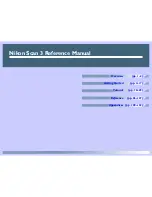
Rapid Spanning Tree Protocol
ExtremeWare XOS 10.1 Concepts Guide
153
The following sections provide more information about RSTP behavior.
Root Port Rapid Behavior
In Figure 15, the diagram on the left displays the initial network topology with a single bridge having
the following:
•
Two ports connected to a shared LAN segment
•
One port is the designated port
•
One port is the backup port
The diagram on the right displays a new bridge that:
•
Is connected to the LAN segment
•
Has a superior STP bridge priority
•
Becomes the root bridge and sends a BPDU to the LAN that is received by both ports on the old
bridge
Figure 15: Example of root port rapid behavior
If the backup port receives the BPDU first, STP processes this packet and temporarily elects this port as
the new root port while the designated port’s role remains unchanged. If the new root port is
immediately put into the forwarding state, there is a loop between these two ports.
To prevent this type of loop from occurring, the recent backup timer starts. The root port transition rule
does not allow a new root port to be in the forwarding state until the recent backup timer expires.
Another situation may arise if you have more than one bridge, and you lower the port cost for the
alternate port which makes it the new root port. The previous root port is now an alternate port.
Depending on your STP implementation, STP may set the new root port to the forwarding state before
setting the alternate port to the blocking state. This may cause a loop.
To prevent this type of loop from occurring, the recent root timer starts when the port leaves the root
port role. The timer stops if the port enters the blocking state. RSTP requires that the recent root timer
stops on the previous root port before the new root port can enter the forwarding state.
Backup
port
Designated
port
LAN segment
Inital topology
EX_054
Bridge
Backup
port
Designated
port
Superior STP
bridge priority
New topology
Bridge
Root
bridge
Summary of Contents for ExtremeWare XOS 10.1
Page 12: ...12 ExtremeWare XOS 10 1 Concepts Guide Contents...
Page 15: ...Part 1 Using ExtremeWare XOS...
Page 16: ......
Page 20: ...20 ExtremeWare XOS 10 1 Concepts Guide ExtremeWare XOS Overview...
Page 32: ...32 ExtremeWare XOS 10 1 Concepts Guide Accessing the Switch...
Page 74: ...74 ExtremeWare XOS 10 1 Concepts Guide Virtual LANs VLANs...
Page 80: ...80 ExtremeWare XOS 10 1 Concepts Guide Forwarding Database FDB...
Page 112: ...112 ExtremeWare XOS 10 1 Concepts Guide Status Monitoring and Statistics...
Page 133: ...Part 2 Using Switching and Routing Protocols...
Page 134: ......
Page 174: ...174 ExtremeWare XOS 10 1 Concepts Guide Virtual Router Redundancy Protocol...
Page 184: ...184 ExtremeWare XOS 10 1 Concepts Guide IP Unicast Routing...
Page 202: ...202 ExtremeWare XOS 10 1 Concepts Guide Interior Gateway Protocols...
Page 216: ...216 ExtremeWare XOS 10 1 Concepts Guide Exterior Gateway Routing Protocols...
Page 224: ...224 ExtremeWare XOS 10 1 Concepts Guide IP Multicast Routing...
Page 225: ...Part 3 Appendixes...
Page 226: ......
Page 234: ...234 ExtremeWare XOS 10 1 Concepts Guide Software Upgrade and Boot Options...
Page 242: ...242 ExtremeWare XOS 10 1 Concepts Guide Troubleshooting...
Page 256: ...4 ExtremeWare XOS 10 1 Concepts Guide Index of Commands...
















































